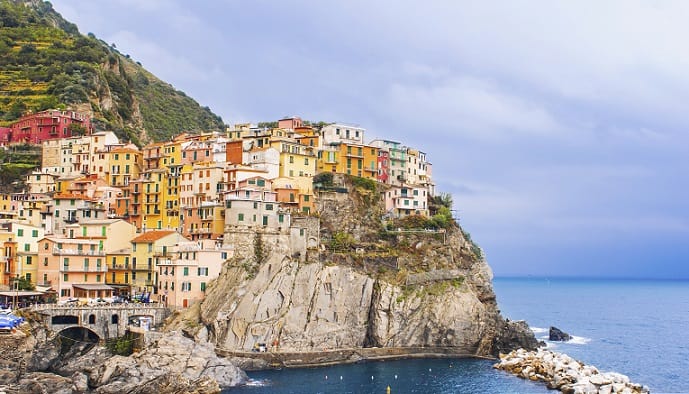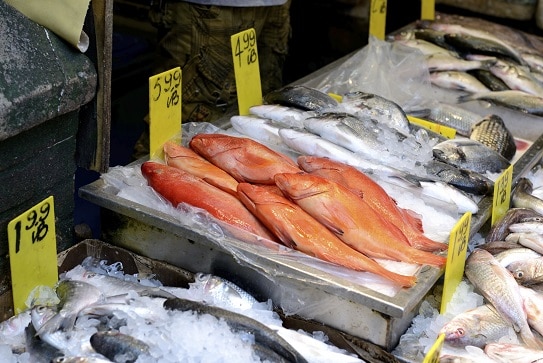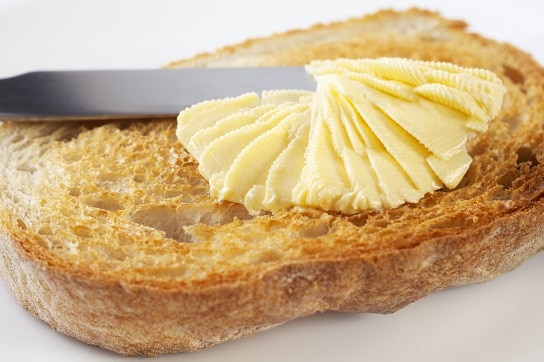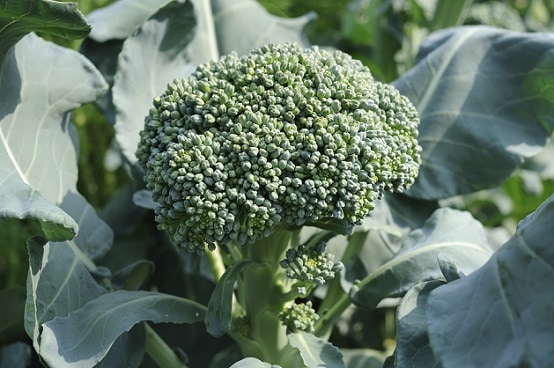 You’ve surely heard the stories. The Mediterranean diet is the healthiest one in the world, and all human beings must follow it right now or risk cardiovascular failure, diabetes and obesity.
You’ve surely heard the stories. The Mediterranean diet is the healthiest one in the world, and all human beings must follow it right now or risk cardiovascular failure, diabetes and obesity.
The hype kicked off around 2008, when a study found that compared to the standard American diet, Mediterranean diet followers had a 6% lower risk of cancer, 9% lower risk of heart disease, and 13% lower risk of Alzheimer’s dementia.
Even the British NHS, which adopts new strategies at a pace of a tortoise, says that “The Mediterranean diet has been associated with good health, including a healthier heart”.
Likewise, the American Diabetics Foundation is telling stories about how “the people of the Mediterranean region are some of the healthiest”, and that “the Mediterranean diet can also help with weight loss and weight management.”
Naturally, there’s also many acne patients wondering whether the Mediterranean diet is the glorious solution they’ve been searching for.
Understand now though, that this diet is nothing but an ideal and a fantasy at best. At worst, it’s a story invented by vegetable oil companies to scare people away from saturated fat.
What is the Mediterranean diet?
The whole idea is to eat like people living on the coast of the Mediterranean Sea – including Greece, Southern France, Spain, Italy, Macedonia, and even Libya and Egypt. The key principles are as follows:
- Low to moderate dairy consumption, including butter and cheese.
- Low consumption of saturated fats from red meat, eggs, etc.
- Plentiful fruits and vegetables, with 5 daily servings or more.
- Olive oil splashed over almost anything.
- The base of the diet is cereal grains, like bread, cereals, rice, and pasta.
- Plenty of beans, seeds and potatoes.
- Moderate red wine consumption.
- Lean meats for protein, but particularly oily fish.
- Locally produced, fresh food rather than processed food.
It’s nearly identical to the USDA’s food pyramid in America; almost no saturated fat, with copious amounts of grains forming the pyramid’s base.
Since the 1990s when Dr Walter Willet first popularised the diet, its followers have been endlessly researched. A review of 35 scientific studies observed less belly fat, high blood pressure, elevated blood fat levels, and high blood sugar, and higher levels of the “good” HDL cholesterol.
Compared to a standard low fat diet, sticking with the Mediterranean diet slashed their waistlines by 0.43 cm, their blood pressure by 2.35 points (on the high reading), and their fasting blood sugar by 3.89 mg/dl.
Read Annihilate Your Acne – get the ultimate diet and clear your acne permanently!
This is exactly the kind of study that makes the American Diabetes Association so excited. In reality though, it’s all smoke and mirrors.
How the Mediterranean diet stacks up for acne
 Make no mistake that the Mediterranean diet contains some excellent strategies for acne:
Make no mistake that the Mediterranean diet contains some excellent strategies for acne:
High consumption of fish – oily fish like salmon, sardines, herring and mackerel contain nearly all their fat content as omega 3 fatty acids. Omega 3s are why fish oil tablets are so popular, and in one study, fish oil reduced acne by 42%.
Mediterranean countries generally favour these fatty fishes over the likes of tuna, with haddock and cod also thrown in as the perfect accompaniment to red wine.
Fish is also high in magnesium compared to meat, which up to 80% of the US population lacks. Orange and pink fish like salmon are high in carotenoid antioxidants like astaxanthin; these guys accumulate in your skin cells and protect your acne from UV rays.
Meanwhile, Americans and Brits eat relatively little fresh oily fish. It’s mostly fried stuff like haddock, packed with inflammatory vegetable oils, or canned tuna, which is contaminated with the heavy metal mercury.
Olive oil – famous for its anti-inflammatory benefits. Olive oil contains many antioxidants, but the most famous is oleuropein, a phenolic compound which lowers both inflammation and free radical chaos (study). In this study, olive oil reduced free radicals itself; the happy result is less acne-clearing antioxidants being depleted.
The Spanish and Italian obsession with olive oil is easily superior for acne to America’s favourite oil – canola oil. It’s touted as heart healthy, but actually the opposite; canola oil contains a poor ratio of omega 6 fatty acids, which increases inflammation across your entire body, including your face.
 Red wine – another excellent source of antioxidants, and another food with one standout compound. It’s resveratrol, which lowers inflammation and functions as an antioxidant.
Red wine – another excellent source of antioxidants, and another food with one standout compound. It’s resveratrol, which lowers inflammation and functions as an antioxidant.
Resveratrol even encourages your body to manufacture its own antioxidants. Red wine has been linked to improved heart health, despite its alcohol content. It’s one of the acne friendly indulgences which I recommend.
France and Spain are notoriously obsessed with red wine; they’re the vineyard kingdoms of Europe. Americas and Brits, meanwhile, are more likely to down a can of beer for their alcoholic indulgence. That’s detrimental for acne, because beer is made from grains like barley and wheat (note: complete guide to alcohol and acne here).
Emphasis on unprocessed food – we discussed here how processed food is the bane of the Western world, and the bane of all acne patients.
You never know what you’re eating in a fast food hamburger, a 50 cent milk chocolate bar, or a blueberry flavoured cookie. Added sugar where you least expect it, vegetable oils like canola oil, phthalates leaching in from the plastic packaging, trans-fats – any acne villain is possible.
Recommended – the top 6 vitamins and minerals for acne-free skin
That’s why eating mostly fresh produce from local farms, in the French and Italian tradition, is a very smart idea. Processed food has a seriously bad reputation in the Mediterranean. Wine comes from local vineyards, family dairy farms haven’t gone out of business yet, and neither have butchers. Chocolate isn’t laced with American-style additives; instead, its superior flavour comes from being lovably hand crafted.
Their recipes are cleaner; a pizza from the local Italian relies on varied herbs, well sourced ingredients and culinary expertise rather than neurotoxic flavour enhancers like MSG. A pizza isn’t remotely healthy for acne, but a Mediterranean one will be better.
Mediterranean countries are much more relaxed; there’s no manic rush to shove their dinner into the microwave and wolf it down in five seconds to catch the bus to work. There’s no barrier to fresh foods cooked from scratch.
More fruits and vegetables – a cornerstone of any acne strategy. Not only due to vitamins and minerals, but also antioxidants and obscure plant compounds, which commonly have unique acne benefits (like quercetin). Eat a wide variety, whether from sweet potatoes, apples, broccoli or cinnamon, and you can clear your skin with a multi-pronged offensive…
…but unfortunately, vegetable consumption has never been lower in the West. Parents no longer force their kids to eat green vegetables, and we’re so addicted to sugar that even fruit cannot satisfy our cravings.
In the Mediterranean, traditional fruits like apples are still popular, but another culinary staple is wild plants, including herbs like oregano, thyme, and wild fennel. Wild plants are even more acne-friendly than cultivated vegetables, which aren’t too shabby themselves.
The flaws for acne
The Mediterranean diet has some great points, but should you religiously stick to its dogma, and stop using your own expertise? Definitely not. Furthermore, there’s two key disadvantages:
Fear of saturated fat – like the US food pyramid, the Mediterranean diet is supposedly heart-healthy because it favours monounsaturated fats over saturated fats. But saturated fats do not cause cardiovascular failure; that myth has been disproven.
Furthermore, they’re the best fats for vitamin E and vitamin A absorption (fat soluble vitamins). Saturated fat is critical for the conversion of plant-based vitamin A, beta carotene, to its active form retinol.
Worse, the Mediterranean diet encourages you to avoid healthy fatty foods. Cocoa butter is 60% saturated fat, but dark chocolate can improve acne by creating anti-inflammatory by-products as your gut bacteria digests it. If you eat dark chocolate regularly, then it’s probably your best source of antioxidants.
Likewise, red meat is minimised on this diet, but it’s higher in minerals than white meat. Eggs are high in saturated fat and cholesterol, but also a terrific source of selenium (which cures acne by increasing glutathione production), zinc, magnesium and vitamin E.
Eggs are like nature’s multivitamin. Egg yolks, the fattiest part, contain vitamin A (a critical acne nutrient) in both retinol and beta-carotene forms.
Since the 1970s, the fear of saturated fat and glorification of whole grains has ruined countless lives, and given countless people acne. The Mediterranean diet simply continues that trend.
 Heavy grain consumption – this is where the diet really falls apart. The US food pyramid, American Diabetics Association, British NHS, and American Heart Foundation all recommend 6-11 servings of whole grains per day. The Mediterranean diet is loaded with pasta and delicious Italian pizzas, and the finest (admittedly fantastic) breads dripping with olive oil.
Heavy grain consumption – this is where the diet really falls apart. The US food pyramid, American Diabetics Association, British NHS, and American Heart Foundation all recommend 6-11 servings of whole grains per day. The Mediterranean diet is loaded with pasta and delicious Italian pizzas, and the finest (admittedly fantastic) breads dripping with olive oil.
But wheat, barley and its cousins are the worst foods for acne ever. If they form the base of your diet, you’ll eat so many carbohydrates that insulin resistance will be inevitable. Your blood sugar and insulin will become chronically elevated, and that leads to chronically oily skin, blocked pores and acne.
Grain mania is the single biggest cause of diabetes in the West, and it’s among the top five causes of acne. Bread, cereal and pasta are the key cause of hormonal acne, since insulin is the most important acne hormone. Wheat and barley also cause digestive problems, most notoriously leaky gut syndrome, because they’re so high in lectins and gluten.
A heavily grain-based diet is a disaster for acne, and that’s enough to make the Mediterranean diet a no-go.
Not so breaking news – Mediterranean people aren’t healthy
Like any diet, there’s some great individual points, but sticking to the whole system is unnecessary.
What’s more, Mediterranean dwellers are almost as fat, diabetic and prone to heart disease as Americans and Brits these days.
The studies above sound promising at first, but the reductions are tiny. The risk factor for cancer for a Western male is roughly 40% across his lifetime. The Mediterranean diet reduced it by 6%, so what you’re left with is a 37.6% chance of cancer.
Likewise, a waistline reduction of 0.36cm is great – if you have a magnifying glass at hand.
The improvements in heart disease and Alzheimer’s are more impressive, but look at the data in the countries themselves. By 2020, the average Frenchmen is projected to be just as obese as the average American.
According to the European Society of Cardiology, deaths from cardiovascular disease have dropped significantly since the 1970s, but particularly in northern European countries, like Denmark and Norway.
50 years ago, the French were known for being thin, and free from heart disease, but from 1997 to 2012, the number of obese people doubled to 7 million. In the USA, 30% of children are overweight, but at 44% of boys and 38% of girls, Greece has them beat. In Italy, it’s 36% and 34% respectively.
We could rattle off loads more statistics, but the general picture of Greeks and Italians sitting back, chinking red wine glasses together, and laughing about how how thin they are is pure myth.
The Mediterranean diet does not exist
 Furthermore, the entire diet itself is a myth. Nowadays, the French, Italians and Greeks are simply following the rest of the world; less healthy saturated fats like butter, and more wheat from pasta and bread. The old art of French cuisine is dying out among normal people, except of course those angry Parisian chefs.
Furthermore, the entire diet itself is a myth. Nowadays, the French, Italians and Greeks are simply following the rest of the world; less healthy saturated fats like butter, and more wheat from pasta and bread. The old art of French cuisine is dying out among normal people, except of course those angry Parisian chefs.
If doctors actually visited a healthy area of a Mediterranean country, then they’d notice that they don’t limit saturated fat; they eat chocolate, and cheeses, red meat, dairy and eggs galore.
Traditional Italian and French recipes use fatty cream in everything. An authentic Italian pasta is often dripping with tasty butter. The Greeks eat goat’s cheese and lamb all the time, the Spanish eat tons of fatty pork and eggs. The world’s oldest women ever, a Frenchwoman called Jeanne Calment (who lived to age 122), apparently ate nearly 1kg (2 pounds) of dark chocolate a week.
The mid-20th century marked the birth of the French Paradox; that the French ate tons of saturated fat from cheese and butter, while still enjoying trim waists and healthy hearts.
Basically, when the Mediterranean actually was healthy, it was eating a lot more saturated fat and moderately less whole grains.
The original original Mediterranean diet founder was in fact Dr Ancel Keys. Immediately after World War 2, he spent time in a poor coastal region of Italy, and observed the local diet…
The top 7 topical treatments for clearing acne naturally
…but this was an era of famine and lingering destruction; nobody could afford fattier meats. Cheaper grains were all people could survive on.
Ancel Keys was also an underpaid professor at the time, so he probably never splashed out on top Mediterranean cuisine, and therefore never witnessed the realities of their love for cheese and butter. The original Mediterranean diet was not based on proper observation.
While we’re here, Ancel Keys was also behind the original scare story on saturated fat; the seven countries paper which showed massive correlations between saturated fat and heart disease. Unfortunately, his original study was on seventeen countries. The full dataset showed no problem with saturated fat, so he conveniently left out the other ten countries.
Shortly afterwards, his shocking discovery propelled him onto the front cover of Time magazine…
Nowadays, the Mediterranean diet works wonders for vegetable oil companies, who benefit from the fear of saturated fat. It works well for bread and cereal manufacturers, and it works especially well for the olive oil industry. Purveyors of the Mediterranean diet pray on people who love pasta and olive oil and are happy to hear they can eat more.
Fear of saturated fat has become so ingrained that the diet seems logical, but the story has vast pieces of reality missing. The Mediterranean is just a story, a shining ideal that exists independently of any real situation.
Conclusion
The Mediterranean diet does not actually exist, and hence, you should make no attempt to follow it. The fantasy version should be ignored, because it’s far too high in acne-causing grains like wheat.
This whole saga illustrates a very important acne strategy – always rely on your own convictions from the knowledge you have and the evidence you’ve seen. You should never get sucked into rigid dogma.
Take the raw food diet. Its central tenant is that we didn’t have ovens when we were evolving, and that all foods are healthiest and most nutritious when raw. But cooked tomatoes are richer in acne-clearing antioxidants, while heating cocoa beans makes their magnesium more bioavailable.
The Paleo diet’s guiding principle is to only eat the foods which “Grok”, a prehistoric man, had access to. Supposedly, all dairy is deadly since Palaeolithic man didn’t have a farmyard full of cows to milk. But aged cheese is a fantastic source of magnesium, which can beat sleep deprivation and any acne derived from it.
That’s why you absolutely need your own nutritional knowledge, to make your own decisions. Otherwise, you’ll forever be led astray by greedy marketers and bumbling national health bodies.
In summary then, the Mediterranean diet is nothing but a phony farce. Don’t get pulled into it, whether for your heart or your acne!
NEXT: get the complete strategy for clearing acne naturally
Thanks for reading!
